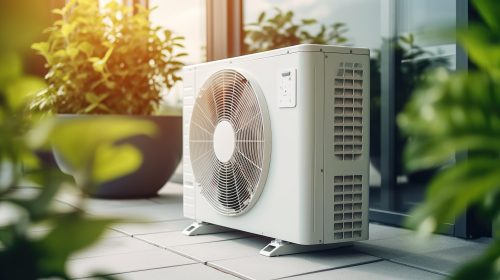As the push towards sustainability and the goal of net-zero emissions by 2050 intensifies, the demand for energy efficiency has never been higher. Traditional HVAC systems typically rely on non-renewable energy sources such as natural gas or electricity generated from fossil fuels, thereby contributing to carbon emissions. As a result, there is an increasing need for the implementation of renewable energy solutions such as Heat Pumps and Hydrotreated Vegetable Oil (HVO).
The benefits and challenges of heat pumps
The rise of heat pumps in recent years is fuelled by growing environmental awareness and government incentives like the Renewable Heat Incentive (RHI). Their efficient heat extraction from air, ground, or water sources offers a sustainable heating alternative. With increasing demand and innovation, heat pumps are reshaping the heating sector towards eco-friendly solutions. But what are the benefits?
Heat pumps offer a multitude of benefits
Heat pumps offer a highly efficient means of heating by harnessing ambient heat from the environment, significantly reducing carbon emissions. They provide both heating and cooling functions, ensuring year-round comfort and flexibility. Although initial installation costs may be higher, the long-term energy savings often outweigh the upfront investment.
However, it’s also important to consider potential challenges, such as the initial investment costs and the need for proper maintenance to ensure efficiency and longevity.
But how are refrigerant gases used in heat pumps?
Refrigerant gases serve as the essential working fluid that transfers heat energy from the heat source to the heat emitters, enabling the heat pump system to function effectively. Therefore, it’s crucial to recognise the role of refrigerants in heat pump installations. Our Sprint Pro Refrigerant Leak Probe combines flue gas analysis with refrigerant leak detection, offering a comprehensive solution for your HVAC and refrigeration needs in a single device. It is compatible with a wide array of refrigerants (including R290 and R600A), ensuring versatility across various applications. The device integrates seamlessly with the Sprint Pro system, providing instant leak detection alerts through both visual and auditory cues.
The promise and potential of HVO
HVO is a form of renewable liquid fuel produced from waste vegetable oils or animal fats. It’s engineered to deliver cleaner, greener energy without compromising on performance, making it a strong choice for environmentally conscious individuals and businesses alike.
HVO integration to Sprint Pro is now here!
Early this year we announced that HVO has officially joined our Sprint Pro product line-up, with all Sprint Pro units purchased after 26th February coming equipped with HVO, replacing traditional Bagasse. This enhancement is part of our ongoing commitment to sustainability and performance excellence. Plus, for existing Sprint Pro users, this update will be seamlessly integrated into your yearly service, ensuring a smooth transition to cleaner, greener energy.
How is HVO changing the world of renewable fuels?
- Environmental friendliness: HVO is a sustainable alternative to traditional fossil fuels.
- Compatibility and versatility: Designed to work seamlessly with existing diesel engines and infrastructure.
- Performance excellence: Experience the power of clean energy with HVO, which delivers comparable performance to conventional diesel while offering cleaner combustion.
- Renewable and biodegradable: Made from renewable vegetable oils, HVO is fully biodegradable.
- Support for sustainable practices: By choosing HVO, you’re supporting the development and adoption of sustainable practices.
While HVO offers significant benefits, the supply chain and production capacity still need to be scaled up to meet growing demand. Additionally, the cost of HVO can be higher compared to traditional diesel, which may pose challenges for widespread adoption.
Embracing renewable HVAC solutions
Integrating renewable energy into HVAC systems can play a significant role in reducing our carbon footprint. This shift to renewables for heating, cooling, and ventilation is a proactive step towards a more sustainable lifestyle. Stakeholders, including homeowners, businesses, and policymakers, must work together to overcome challenges and drive the adoption of these green technologies.

